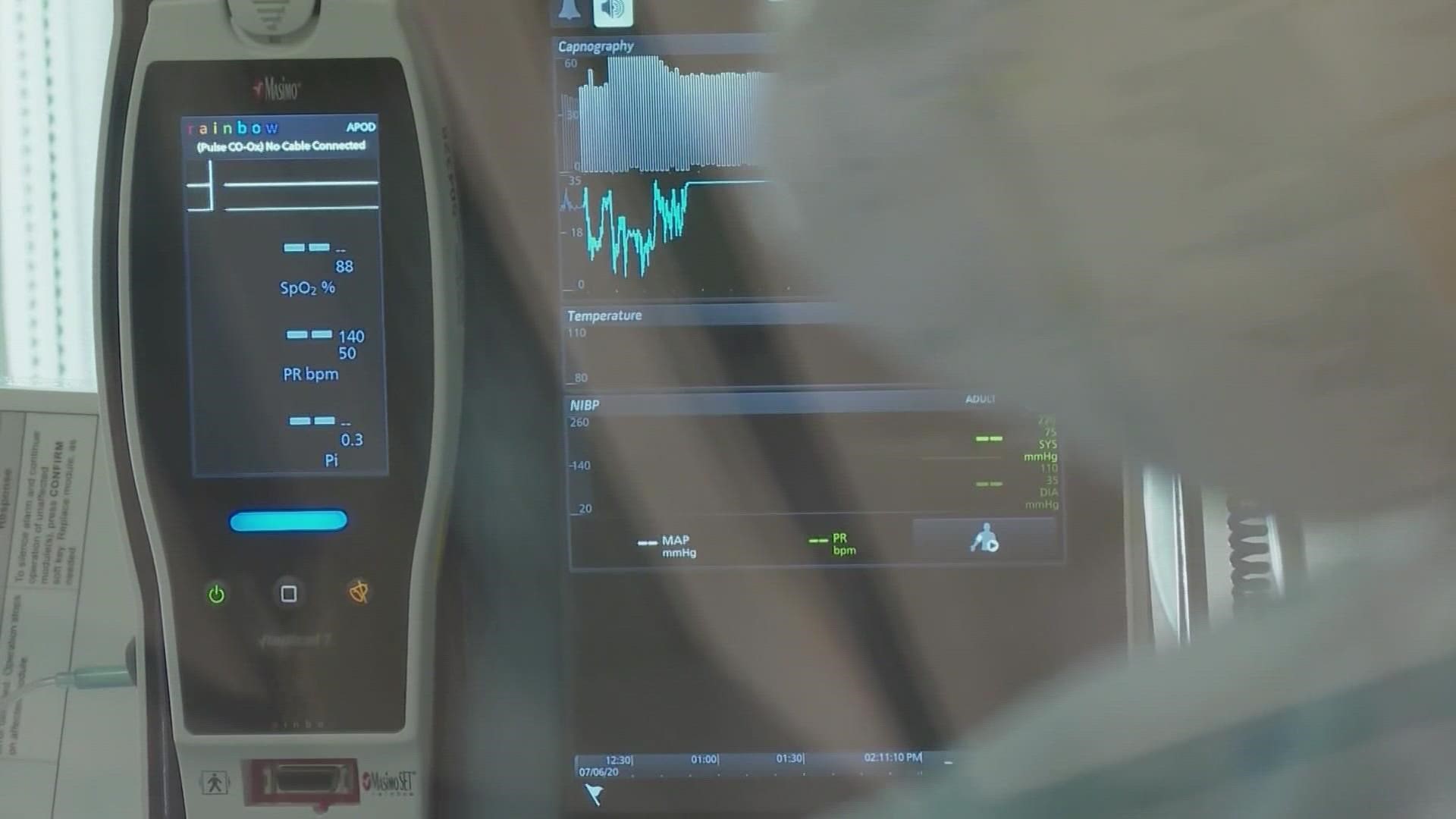FORT WORTH, Texas — Texas’ first COVID-19 case was March 6, 2020. By March 11, the NBA season was suspended, and the WHO declared the disease a pandemic.
For two years, health care workers have been on the frontlines treating COVID patients. Still, more than 85,000 Texans have died from the disease.
Dr. Jay Herd dealt with one of the first cases in the state as the chief medical officer at Baylor Scott & White All Saints.
“Two years is a long time,” Herd said. “To me, it feels even longer because it has been pretty intense two years.”
COVID hospitalizations in North Texas are the lowest they’ve been since June of last year and down more than 90% from the omicron peak in January.
“I’m pleased to report it’s looking pretty good,” Stephen Love, the president of the DFW Hospital Council said. “We are very thankful that we are seeing the trending down.”
Still hospitals aren’t completely back to business as usual.
“We’re still being cautious and still wearing masks and asking our patients and our visitors to wear masks,” Herd said.
“We had people that just said, ‘I can’t to continue to do this, so staffing has been an issue,'” Love said.
Both believe vaccinations, prior infections and supplies of treatments like pills and monoclonal antibodies should keep possible future waves from being as severe.
“The whole problem is we don’t know what the next strain is going to bring,” Herd said.
There are still masks on planes and other federal transit for at least another month. In an interview with 60 Minutes, CDC Director Dr. Rochelle Walensky said we’re not quite at a level of restrictions needed.
“I do think that we will get to a place with this disease where we live with a relatively low level all year long and that maybe we have some surges during respiratory virus season,” she said.
There have been more COVID cases in Texas in 2022 than the first 10 months of the pandemic. It can be tough to remember what life was like two years ago before COVID began, but this time the end truly is in sight.
“Hopefully we’ll never have another pandemic, but it could happen and we’re always going to deal with infectious disease,” Love said. “So we’ve got to do our part.”

